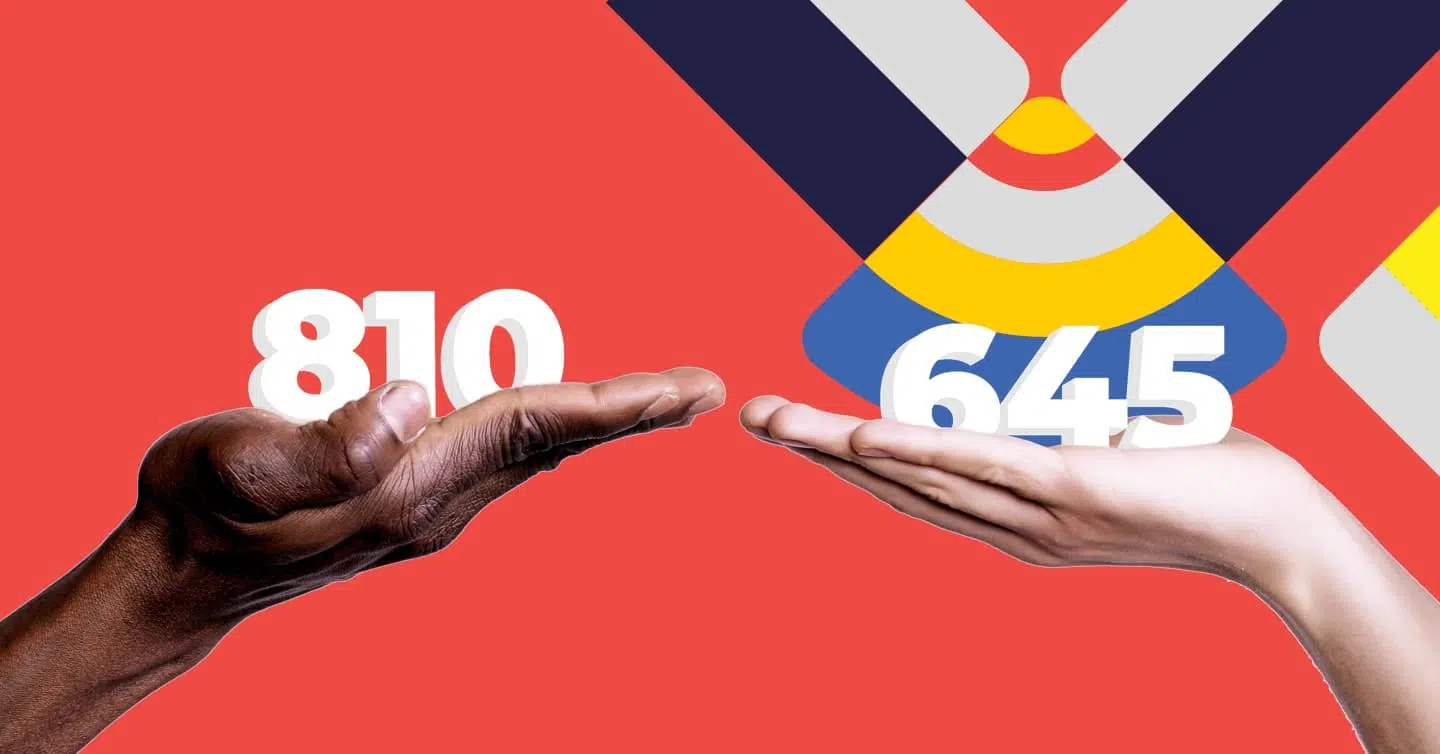Do You Understand Your Credit Score?

Table of contents
You’ve heard about it, you’ve seen ads for it all over the internet, and people have told you over and over again how important your credit score is. But do you know exactly what it is? Do you understand how it works? If you’re like most people, you might not fully understand what it entails.
Don’t feel bad. This credit score is actually a fairly complex matter. Let’s see if we can clear the cobwebs around it.
Hey Buddy, Can I Borrow $100?

Think back to that time you loaned $100 to your roommate (or friend/cousin/love interest – pick your poison). You didn’t reach for your wallet right away, did you? I thought so.
My guess is you checked your roommate’s file, which you had stored in your mind. You knew the person, to a certain extent, and you knew how he or she managed their money. You used this knowledge to predict how likely it is that your roommate will pay you back.
So, in your mind, you arbitrarily gave your roommate a credit rating. If it’s good, and you assess that you can live with the risk, you hand over that $100 bill. If it’s bad, you politely tell your roommate to find another source for the money.
Well, banks, financial institutions, and other lenders use a similar system. They have a file on you, which contains a multitude of factors and information they use to come up with your credit rating. Based on this rating, they decide whether or not to lend you money.
You Can Run, But You Can’t Hide
How old were you when you first used a credit card? Were you 18? Maybe 30?
No matter when you took your first step into the fascinating world of credit, know this: your entire credit history is stored in a file at a credit bureau. This includes balances, limits, payment history, etc.
Remember that department store credit card you signed up for on that Saturday afternoon, some 10 years ago, when you had to buy new brakes for your 1992 Toyota Tercel? It’s in your file, whether you only used it that one time and paid it off right away, or if you never even used it after you were approved.
Did you forget to make the minimum payment on your credit card in September 2014? Yep, that’s also in your file. Because when it comes to your credit history, secrets last quite a while!

How To Improve Your Credit Score
So, if having a good credit score is so important, I imagine you want to improve yours, right? It’s perfectly normal. How do you go about it, then?There are many ways to improve your score.
Here are the main points you should focus on:
- Avoid late or missed payments: This is self-explanatory. If you can’t come up with the money to pay your credit card bill, or your cellphone bill, the lender might be wondering concerned about your ability to pay your mortgage. So, pay your bills on time. If you can’t pay the entire balance, make sure you make the minimum payment by the due date.
- Manage your credit cards: Though having a wallet filled with credit cards will help build your credit profile, it can be difficult to manage. Rule of thumb: keep your balances as close to 0 as possible, try to never let your balance exceed 50% of the limit, make your payments on time, and you will see your score rise.
- Avoid high credit card and/or loan balances: If you already owe a lot of money to credit card companies and/or banks, why would another lender decide to add to that total by agreeing to a mortgage loan? Try to keep your balances as low as possible at all times; ideally, your balance should sit at $0 when your bill is due. This will greatly improve your credit score or strengthen an already great score.
Your Mortgage Application and Your Credit Score
Yes, your credit score is important. But when it comes to applying for a mortgage, there are many other pieces of information which lenders use to determine whether your application will be approved or declined. They want to know how much money you make, what your employment status is, how you are paid, and how much debt you carry, for example.
There are a multitude of credit scores out there. When looking at your mortgage application, lenders will likely refer to your Beacon Score 9.0. This rating represents the likelihood of a borrower going 90 days without making a payment in the first 2 years of a loan’s term. This credit pull is known as a hard pull, meaning that it will affect your credit score.
Nesto will need to review your credit score from Equifax to understand your creditworthiness for your chosen mortgage solution. If you have questions, it would be best to consult with your nesto mortgage expert during the qualification or prequalification process during your mortgage application. Nesto cannot approve a mortgage without reviewing your credit score and history from Equifax within 30 days of your mortgage closing or transfer date.
Credit scores range from 300 (just getting started) to 900 points, which is the best score possible. A credit score greater than 700 will usually give you access to all of the best rates and mortgage product features.
Start your pre-qualification to get your free credit score, and see which rates you qualify for. Rest assured that our pre-qualification credit check will never affect your credit score!
Ready to get started?
In just a few clicks, you can see our current rates. Then apply for your mortgage online in minutes!















